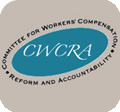| Home | Press Home | In the News | Schwarzenegger tells how he’d clean up Capitol
September 19, 2003 Schwarzenegger tells how he’d clean up Capitol Dan Smith, The Sacramento Bee Outlining his pledge to “clean up Sacramento,” Republican gubernatorial candidate Arnold Schwarzenegger on Thursday proposed a sweeping plan to limit campaign fund raising, make public more government documents and shift the decennial chore of redrawing legislative districts to a panel of judges. “The people of this state do not trust their government,” Schwarzenegger said, speaking to reporters inside the California State Railroad Museum. “They feel it is corrupted by dirty money, closed doors and backroom dealings. They see the contributions go in, the favors go out, and the people are punished with wasteful spending and high taxes.” Schwarzenegger said he picked the railroad museum because of the obvious symbolism it provided: Political reformer and former Gov. Hiram Johnson engineered a variety of political reforms, including the recall, to combat the influence of railroad barons. The proposal confronts the Legislature head-on and would likely face wide opposition in the Assembly and Senate. Similar ideas have come forth in recent years with virtually no success in the Legislature or the ballot box. Schwarzenegger said he would rely on his powers of persuasion. “That’s what being governor is all about,” he said. “You’re the leader of the legislators. You go in there and you tell them what you want to do: ‘Here is my vision.’ You make the vision. You lay out what the program is, and you bring both parties together. “There’s a lot of great talent in Sacramento, Democrats and Republicans alike — people that really want to do good for the state. You have to bring them together and give them leadership.” The explanation was remarkably similar to Gov. Gray Davis’ combustible comments six months after taking office in 1999 that the Legislature’s job “is to implement my vision.” The plan, outlined before Schwarzenegger’s speech by staff aide Joe Rodota, who said the candidate was “very active” in developing it, has four major prongs: * As governor, Schwarzenegger would support and work to expand a plan pending in the Assembly, SCA 1, to place open records and open-meeting provisions in the California Constitution. He would toughen the measures, though, and open up legislative party caucus meetings, make the governor’s calendar available and lift any restrictions on e-mail communications and other draft documents, some of which are now exempted from public-records laws. The idea is based on a system in place in Florida. In addition, he vowed as governor to veto any bill that did not get a full public hearing in each house — a promise directed at the spate of “gut-and-amend” measures that crop up at the end of each legislative session and sometimes pass with little or no public scrutiny. After a speech at Los Angeles Southwest College, Davis noted Thursday that he vetoes many such bills, but that “occasionally there is an emergency or some public necessity that might require a bill to go through under those unusual circumstances.” * Lawmakers, the governor and the lieutenant governor would be prohibited from raising campaign cash while the state budget was under consideration — beginning with its unveiling in January and ending with its signing, which can vary tremendously. “Sacramento,” Schwarzenegger said, “is a revolving door of spending the people’s money and taking the lobbyists’ money.” He said the “ideal thing” would be to expand the fund-raising ban to include the end of legislative sessions and the one-month period in which the governor signs legislation, but that his lawyers said “it would not fly and it would be challenged in court.” Schwarzenegger said it is “fair” to limit the campaign fund-raising activities of politicians even though he and other wealthy candidates have little or no need to raise campaign money. * Politicians would have to disclose on the Internet all campaign contributions of any amount within 24 hours of receiving them. Proposition 34, besides limiting the amount of contributions, required disclosure within 24 hours of donations of $1,000 or more made in the 90 days preceding an election. Contributions over $5,000 must be disclosed during other times. Also, he would make it a felony for a donor to launder a contribution — hiding its true source — or for a candidate to intentionally coordinate with an independent expenditure campaign to evade contribution limits. * Schwarzenegger said he would work to change the constitution to remove redistricting from the Legislature’s purview. The once-a-decade process has resulted in skewed districts drawn for partisan advantage or incumbent protection and “distort(s) democracy,” he said. Under the proposal, the state Judicial Council would choose by lottery a panel of three retired judges to draw district boundaries. Early reviews were supportive from good-government advocates but skeptical from the Legislature and the Governor’s Office. The idea of opening up legislative caucuses — in which lawmakers in each party meet separately in private to hash out issues before public debate begins — would remove an important tool, said Assembly Republican leader Dave Cox of Fair Oaks. “We certainly couldn’t have any caucuses where we talked any strategy,” he said. Cox said he disagreed with Schwarzenegger’s premise on the fund-raising ban — that budget decisions are influenced by contributions — but said lawmakers would likely just shift their efforts to other parts of the year. “There would just be a greater press during the period when you can campaign,” he said. Senate President Pro Tem John Burton, D-San Francisco, issued a terse statement through a spokesman: “The governor is covered under SCA 1, so Arnold should know what the hell he is talking about before he says it.” But Terry Francke, general counsel of the First Amendment Coalition, part of a group pushing SCA 1, said Schwarzenegger’s plan would be a significant broadening of the current proposal, particularly by eliminating the public-records exemption for “draft” documents and virtually eliminating the “deliberative process” exemption for documents and e-mails in the Governor’s Office. “That’s certainly a bold position to take for someone who wants to be the chief executive,” Francke said. “If that’s an unflinching commitment, it’s a remarkable thing.” Davis spokesman Steve Maviglio said the idea of virtually eliminating the governor’s long-held executive privilege “would have a very chilling effect on the way we do business. … It’s one of those things that sounds good as political rhetoric but would have no effect in the real world.” |
| | Monday, June 7, 2004 | | |
 | |
| Home | |
| CALIFORNIA RECOVERY TEAM | |
| About CRT | |
| GET INFORMED | |
| About Arnold | |
| Leadership | |
| Endorsements | |
| News Room | |
| Opinion | |
| JOIN THE TEAM | |
| Contribute | |
| Volunteer | |
| Share Your Views | |
| SERVICES | |
| Image Center | |
| Multimedia Center | |
| Downloads | |
| Search News | |
| Privacy Policy | |
| Contact Us | |
| ||||||||||||||||
|
Contact Us Privacy Policy |
Copyright © 2003 |


